7 start with W start with W
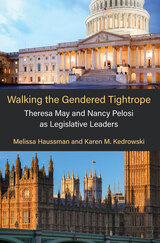

From Policy Advocates to Whips to Ministers, the many roles within the British Parliament are shaped not only by institutional rules but also by the individuals who fill them, yet few observers have fully appreciated this vital aspect of governing in one of the world's oldest representative systems. Applying a new motivational role theory to materials from extensive first-hand interviews conducted during the eventful 1970s, Donald Searing deepens our understanding of how Members of Parliament understand their goals, their careers, and their impact on domestic and global issues. He explores how Westminster's world both controls and is created by individuals, illuminating the interplay of institutional constraints and individual choice in shaping roles within the political arena.
No other book tells us so much about political life at Westminster. Searing has interviewed 521 Members of Parliament—including Conservative Ministers Margaret Thatcher, Peter Walker, and James Prior; Labour Ministers Harold Wilson, Barbara Castle, and Denis Healey; rising stars Michael Heseltine, Norman Tebbitt, David Owen, and Roy Hattersley; habitual outsiders, like Michael Foot, who eventually joined the inner circle; and former insiders, like Enoch Powell, who were shut out. Searing also gives voice to the vast number of Westminster's backbenchers, who play a key part in shaping political roles in Parliament but are less likely to be heard in the media: trade unionists, knights of the shires, owners of small businesses, and others. In this segment of his study, women, senior backbenchers, and newcomers are well represented.
Searing adroitly blends quantitative with qualitative analysis and integrates social and economic theories about political behavior. He addresses concerns about power, duty, ambition, and representation, and skillfully joins these concerns with his critical discoveries about the desires, beliefs, and behaviors associated with roles in Parliament. Westminster's World offers political scientists, historians, anthropologists, political commentators, and the public rich new material about the House of Commons as well as a convincing model for understanding the structure and dynamics of political roles.
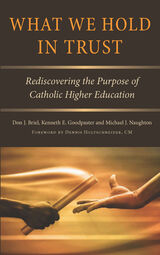
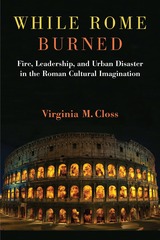
Working in the increasingly repressive environment of the early principate, Roman authors frequently employed “figured” speech and mythopoetic narratives to address politically risky topics. In response to shifting political and social realities, the literature of the early imperial period reimagines and reanimates not just historical fires, but also archetypal and mythic representations of conflagration. Throughout, the author engages critically with the growing subfield of disaster studies, as well as with theoretical approaches to language, allusion, and cultural memory.
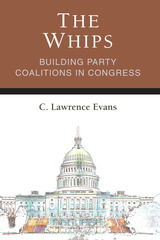
The party whips are essential components of the U.S. legislative system, responsible for marshalling party votes and keeping House and Senate party members in line. In The Whips, C. Lawrence Evans offers a comprehensive exploration of coalition building and legislative strategy in the U.S. House and Senate, ranging from the relatively bipartisan, committee-dominated chambers of the 1950s to the highly polarized congresses of the 2000s. In addition to roll call votes and personal interviews with lawmakers and staff, Evans examines the personal papers of dozens of former leaders of the House and Senate, especially former whips. These records allowed Evans to create a database of nearly 1,500 internal leadership polls on hundreds of significant bills across five decades of recent congressional history.
The result is a rich and sweeping understanding of congressional party leaders at work. Since the whips provide valuable political intelligence, they are essential to understanding how coalitions are forged and deals are made on Capitol Hill.
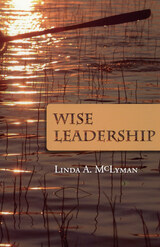

The best kind of learning is that which never ends—and a culture of training means that staff will be more flexible and responsive to new ideas and strategies, imperative in today's libraries. In this practical resource, leading workplace trainers Reed and Signorelli offer guidance on improving the effectiveness of training programs. Their book takes readers through the entire process of developing, implementing, and sustaining training programs and communities of learning, in order to
- Empower individuals to become leaders and teachers by cultivating a culture of ongoing learning
- Connect library staff and users to information resources so they can effectively use them to their benefit
- Develop skills among both managers and workers for practicing continuous formal and informal training
READERS
Browse our collection.
PUBLISHERS
See BiblioVault's publisher services.
STUDENT SERVICES
Files for college accessibility offices.
UChicago Accessibility Resources
home | accessibility | search | about | contact us
BiblioVault ® 2001 - 2025
The University of Chicago Press









